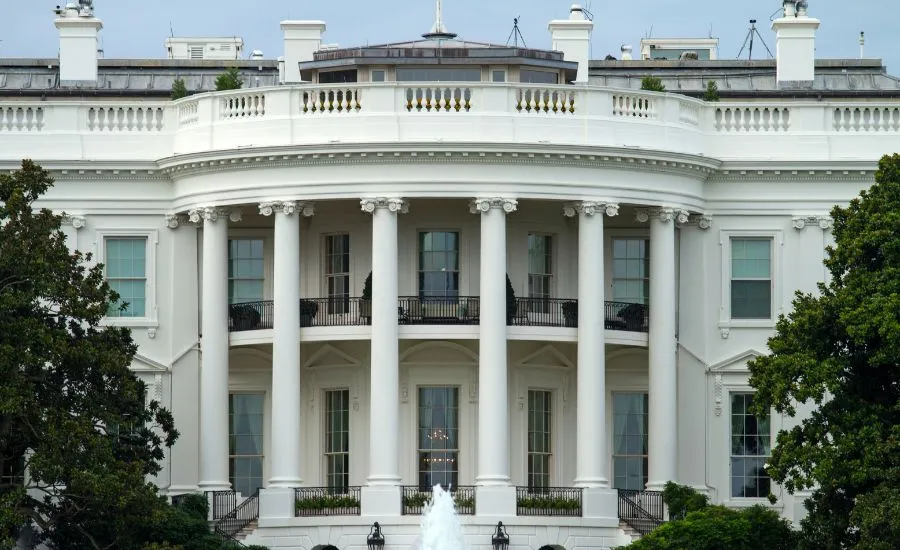President Biden’s FY 2024 budget proposes a number of tax changes aimed at higher-income taxpayers.
President Biden’s fiscal year 2024 budget proposes several tax changes aimed at higher-income taxpayers. Among the tax proposals that will almost certainly die in a divided Congress are significant tax rate increases for Medicare and capital gains. In addition, Biden is proposing a minimum tax on billionaires. According to the White House, the president’s budget reduces deficits by nearly $3 trillion over ten years.
Capital gains tax rate under Biden
Capital gains are the profits made from the sale or trading of a “capital asset.” The tax rates apply to a specific CG (i.e., capital gains tax rates) are determined by the type of asset. Your taxable income, and the length of time you held the property before selling it.
Long-term capital gains (assets held for more than a year) are currently taxed at a rate of no more than 20%. In Biden’s budget proposal, that rate would nearly double to 39.6%. According to Biden’s proposal, the proposed capital gains tax rate increase would apply to investors earning at least $1 million per year.
There is a proposal to increase the Medicare tax rate.
President Biden is suggesting raising taxes for those who earn more than $400,000 annually in order to support Medicare. Wages, salaries, and capital gains would determine this income level.
President Biden referred to Medicare as a “rock-solid guarantee that Americans have counted on to be there for them when they retire” in an opinion piece for the New York Times that was published just before the release of the administration’s budget proposal.
More than 60 million people use Medicare, which provides health insurance to individuals over the age of 65. Experts predict that the number of people utilizing Medicare will increase. Raising concerns about the long-term viability of Medicare and other programs such as Social Security.
Biden proposes increasing the Medicare tax rate from 3.8% to 5%. The increased tax rate would aim to extend the Medicare program’s solvency. According to Tax Policy Center data, Biden’s proposed Medicare tax rate increase could generate $117 billion in tax revenue to help fund the program. However, given congressional partisanship, the Medicare tax rate increase, like the capital gains tax proposal, is unlikely to gain enough support to pass.
The proposed increase in the top-income tax rate
Along with proposed increases in capital gains and Medicare tax rates, President Biden wants to raise the top income tax rate for higher-income taxpayers. Biden’s budget proposal suggests taxing taxpayers earning $400,000 at a top rate of 39.6%. The tax system links the current top tax rate of 37% to inflation-adjusted tax brackets. The proposed tax change in rates would be a rollback of the Trump tax cuts.
The Biden budget is merely a proposal that, given the current state of play on Capitol Hill, is unlikely to garner enough congressional support to pass. As a result, the seven tax rates familiar to you for the 2022 tax year (i.e., 10%, 12%, 22%, 24%, 32%, 35%, and 37%) apply for 2023. (The tax authorities adjust the associated income tax rates for inflation each year.)
Minimum tax on billionaires
President Biden also wants billionaires to pay a minimum tax. Some of the reasoning behind this “wealth tax” is that wealthier taxpayers can often avoid paying taxes on a large portion of their income. This is partially due to the fact that investments. Wealthy people typically increase their wealth by investing, which the tax system taxes at rates lower than earned income. Earned income (wages and salaries) is typically the primary source of income for low- and middle-income taxpayers.
In Biden’s budget proposal, the billionaire tax would be at least 25% for households with a net worth of more than $100 million. To put this in context, the wealthiest taxpayers in America reportedly pay an average tax rate of 8%. So President Biden is essentially proposing a 17% tax increase for the wealthiest taxpayers.
Massachusetts passed a “millionaires tax” this year, and several states have proposed “wealth taxes”.
Biden’s budget proposes raising corporate tax rate to 28% from 21% due to the 2017 Tax Cuts and Jobs Act.
Overall, the tax proposals in Biden’s 2024 budget reflect the administration’s commitment to addressing economic inequality and promoting social welfare. While they may generate mixed reactions, they represent an effort to raise revenue to fund government programs and invest. It remains uncertain how the legislative process will fare in regard to these proposals. What their ultimate impact will be on taxpayers and the economy.
The tax laws are very complex. Our short blog articles can only partially cover all the rules and nuances. Your specific facts may hold various opportunities and possible risks that only experienced, and highly qualified tax specialists can spot. We encourage you to find such help, rather than trying to figure it all out alone. Consider trying the IfindTaxPro marketplace by posting your project and signing up here.
If you are a licensed tax professional interested in helping others either part or full-time, or ad hoc, come on in! Happy to have you. Our marketplace has the full suite of tools to communicate with clients including compliance calendars, task, message management, and billing. You can also quickly connect to knowledgeable colleagues who can complement your services with the ones you do not provide. Register here.









1 Comment
Notable Tax Changes in Biden's 2024 Budget | Ta...
[…] President Biden's FY 2024 budget proposes a number of tax changes aimed at higher-income taxpayers. […]